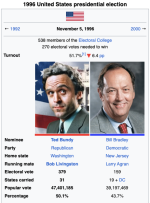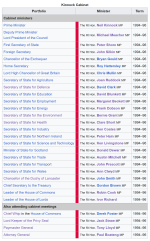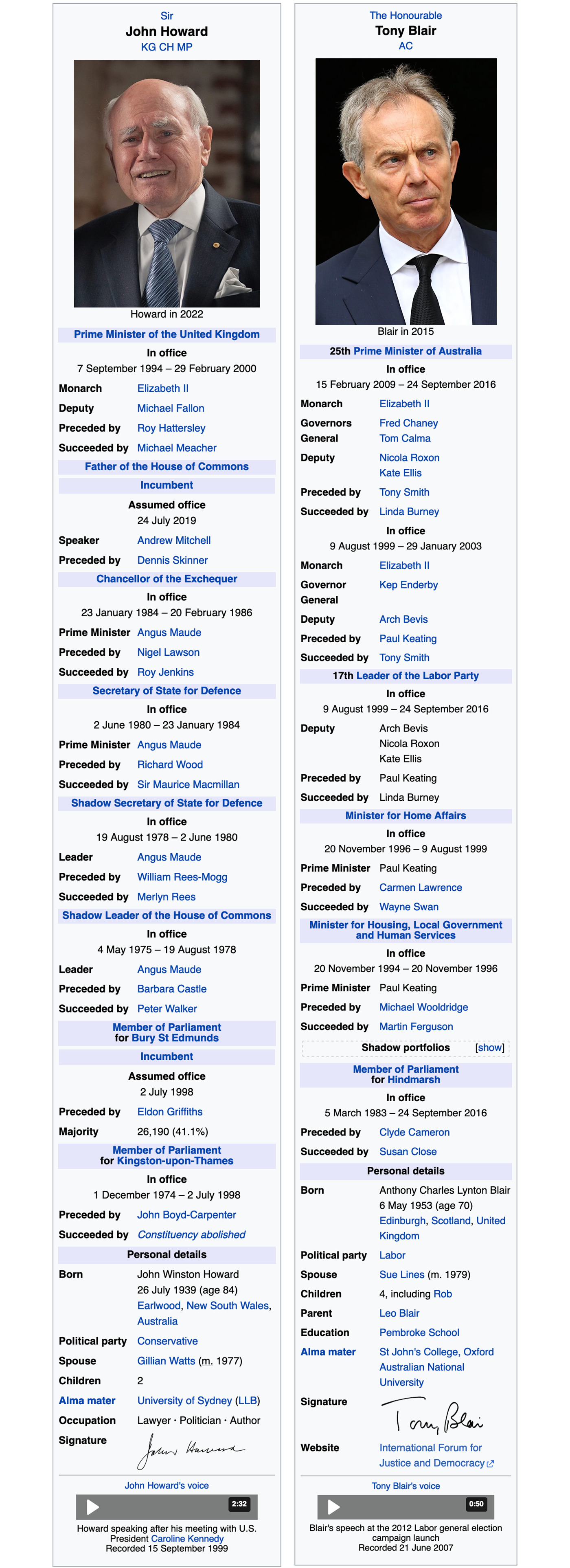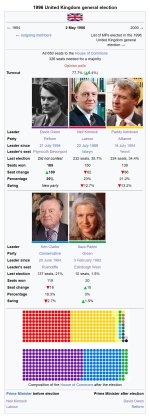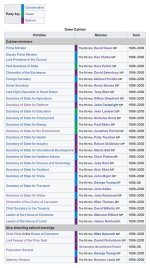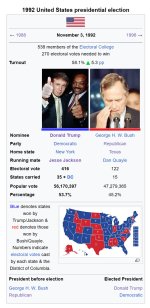Reading back one of my earlier scenarios, I noticed I usually stop just short of points other people here would get to. Like with my Ted Bundy timeline. He was Governor, sure, and a Senator, yes, but President? No, not even that -- he gets to be H.W. Bush's VP nominee but his deeds get revealed a few weeks before election day. He never actually gets into the oval office. So bear with me.
☠︎
"
...After graduating from UW in 1972, Bundy joined Governor Daniel J. Evans's re-election campaign. Posing as a college student, he shadowed Evans' opponent, former governor Albert Rosellini, and recorded his stump speeches for analysis by Evans's team. Evans later appointed Bundy to the Seattle Crime Prevention Advisory Committee, an occupation he later used to bolster his position as a 'law and order' candidate..."
- Wikipedia
String of Disappearances Alarm Parents and Police
- The Seattle Times, 1974
"
After Evans was re-elected, Bundy was hired as an assistant to Ross Davis, Chairman of the Washington State Republican Party. Davis thought well of Bundy and described him as "smart, aggressive, and a believer in the system." Following Evans' decision not to run for a fourth term, Davis and Party officials approached Bundy to run for Governor. Bundy initially declined, citing his recent marriage to Elizabeth Kloepfer, but eventually agreed on the condition that Arthur Fletcher be named as his running mate..."
- Wikipedia
VOTE BUNDY TO SLASH YOUR TAXES
- Campaign advert, 1975
"
I'm a firm believer in the virtue of self-sufficiency. I don't believe our citizens are lax, or lazy, or indifferent. In Washington we have a strong voluntary programs, we don't need legislative incentives."
- Bundy during stump speech, 1976
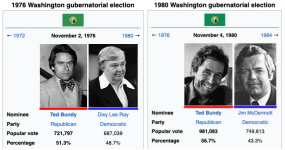
"
...contrary to his charismatic public persona, Ted governed in a cold, analytical manner. This was spun by pundits as ruthlessly efficient conservatism, a state government that would trim the fat and ignore flagrant appeals to emotion, politics without the human element. Admittedly, this was a half-truth. He applied policy as a Reaganite conservative, sure, but truthfully, Ted loved things more than he loved people. He could find life in infrastructure or the environment, and feel a kind of compassion for these things, more compassion than he could ever feel for another human being. In an average man, this would be reprehensible. In the governors office, it was just politics..."
- Ann Rule, 'Stranger In the White House: the Ted Bundy I knew'
Police Baffled by Mystery Murders Following Mt. St. Helens Eruption
- The Seattle Times, 1980
Governor Bundy Promises Justice to Grieving Families
- The Daily World, 1981
"...
Bundy resigning the governorship to be appointed to fill Jackson's seat was more than just a power-play to raise his national profile - it saddled Fletcher with all the blame for the subsequent recession. Not only did he escape a problem that would've surely cost him re-election, he was now given free roam of the nation's capitol..."
- Ann Rule, 'Stranger In the White House: the Ted Bundy I knew'
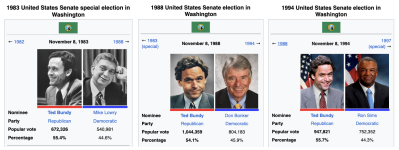
Bundy blames pornography, alcohol for rise in violent behavior
- Washington Post, 1984
“
...Society wants to believe it can identify evil people or bad or harmful people, but it’s not practical. There are no stereotypes...”
- Senator Bundy speaking on the passage of the Anti-Drug Abuse Act, 1986
"
...staffers would claim that Bundy's behaviour fluctuated between affable eccentric to sullen misanthrope. Many wrote it off as a dissatisfaction with the Senate over his old position as Governor, which was eventually tacked on to his frequent absences. While he would never miss a vote, Bundy would periodically disappear from his offices, showing up anywhere from a few hours later to some time the next day. Nobody asked, in case Bundy's mood that day was dour, but his former Senate colleagues recall him offering up small talk about aimless drives or nature walks in the DMV area..."
- Ann Rule, 'Stranger In the White House: the Ted Bundy I knew'
"No, absolutely not. We cannot allow that creep near our campaign."
- Lee Atwater on the possibility of Senator Bundy being President Bush's running mate, 1988
Governor's Wife Found Dead! Foul Play Suspected
- Arkansas Democrat-Gazette, 1989
Clinton: I will not run for President
- CNN, 1991
Presidential Election Results: BUSH SWEEPS, DEMS WEEP
- Fox News, 1992
"
...despite a brief road-bump concerning taxation rates, the Bush administration quickly recovered approval ratings as the economy mostly stabilised by the mid 1990s. lacklustre performance by the Democratic party candidate in 1992 fed into liberal worries that America would continue to be under Republican majority control for another decade, with the more provocative suggestion that the Republicans could run 'an absolute madman' for the nomination and have voters elect them through sheer apathy..."
- Wikipedia
